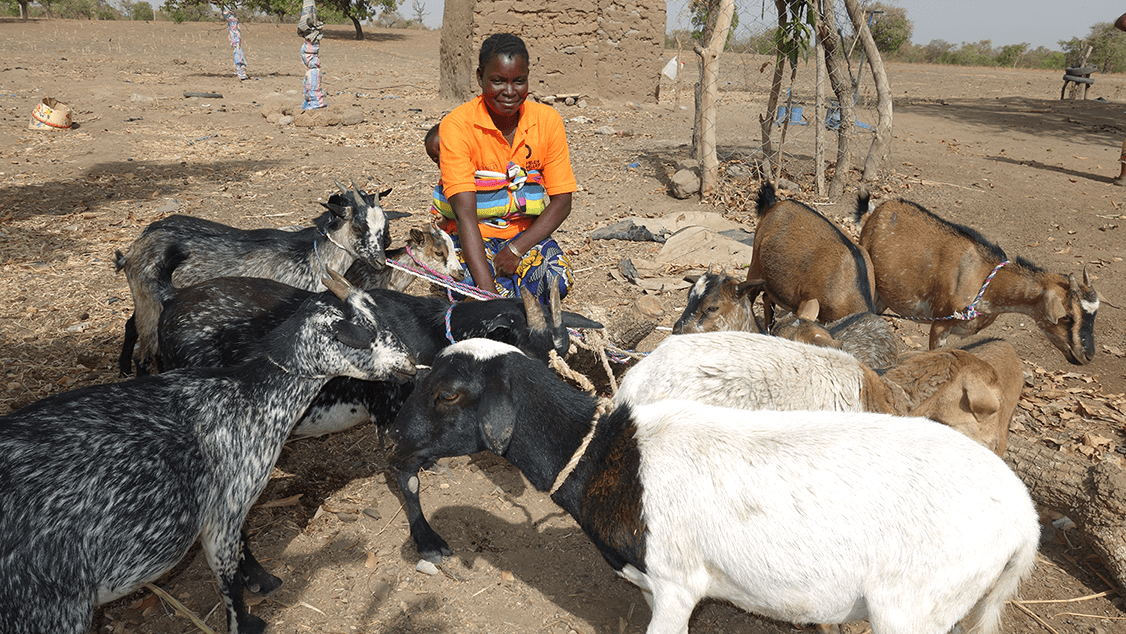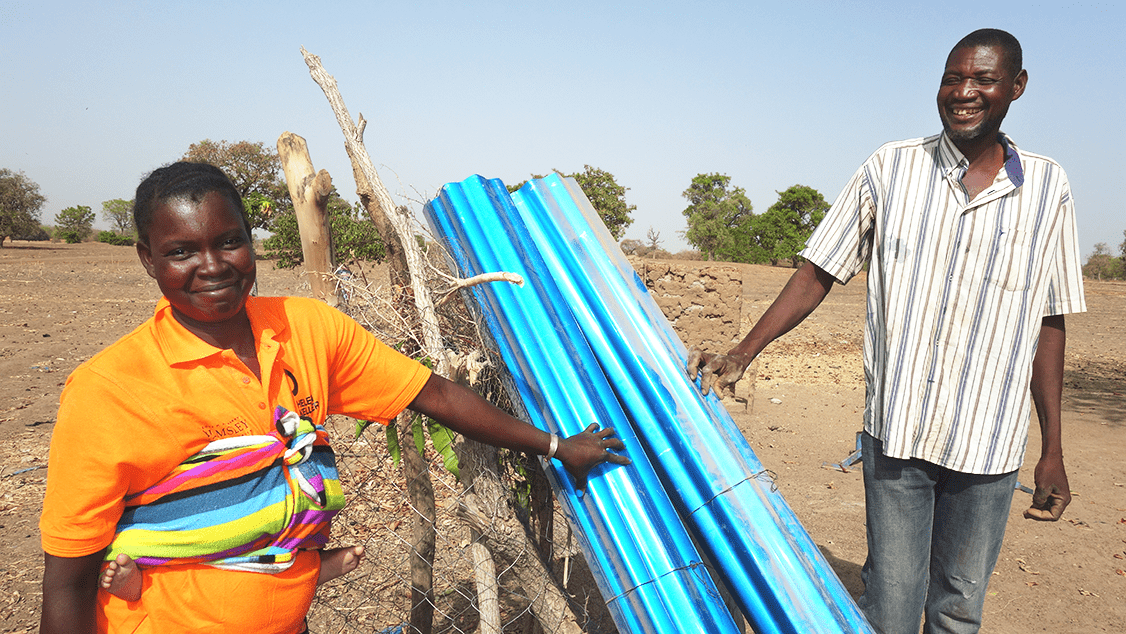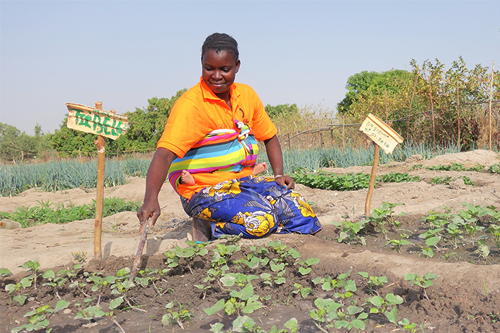Sweet Potatoes: Nutrition, Economic Security, and Inspiration
In her village in west central Burkina Faso, 34-year-old Kacoara Dahourou, a mother of four, knows firsthand the hardships of financial insecurity and hunger. Growing nutritious foods in a region that receives little rain – and finding affordable foods close to home – has long been a challenge for her. She also harbors a lingering fear that she and her family might need to flee if unrest from nearby conflicts moves closer to her community.
Kacoara lives in a district that is home to a number of ethnic groups, all of whose livelihoods depend mainly on subsistence agriculture and the raising of livestock. Yet women are often denied use of the arable land that would give them a chance to achieve some economic independence. For a long time, Kacoara had few financial resources, as she could access just a tiny parcel of land for her subsistence crops.
Building Economic and Food Security
Fortunately, in Burkina Faso and elsewhere, Helen Keller Intl works to improve food security, nutrition, and livelihoods for mothers just like Kacoara. In the space of two short years, thanks to the skills she learned from our local staff, Kacoara not only became a more successful farmer, but she began selling cuttings from five varieties of orange-fleshed sweet potatoes to other women in her village.

The orange-fleshed sweet potato is a nutrient-rich root vegetable, and several varieties grow well even in very dry conditions. Significantly, it provides high levels of vitamin A that protect sight and build immunity. This is especially important for children in many parts of Africa, where diets often lack enough vitamin A.
Kacoara’s participation in our program (supported with funding from the Helmsley Charitable Trust) has now enabled her to acquire a larger plot of land, expand her sweet potato operation, and significantly increase her income – her earnings having grown from less than $1 to more than $7 a day.
She is proud to say that the money she earns from her larger farm allows her to pay the school tuition for her own children and that of four other kids in her extended family. It has also financed the purchase of two sheep and seven goats. She expects that she will soon be able to afford a draft ox to help her till her fields. All this has set a powerful example for other aspiring women entrepreneurs in her community.

Saying that Kacoara is keeping a roof over her children’s heads is not a cliché – she has quite literally purchased 30 corrugated roofing sheets for their new home. Yet it’s equally important to note that Kacoara’s achievements are contributing to her community’s collective successes, including the purchase of agricultural supplies to grow new crops, the installation of irrigation pipes to support further expansion, and the replacement of a pedal pump with a motorized one to make irrigation less arduous.
Inspiring Women Entrepreneurs
With her increased earnings, Kacoara has also been able to join her village’s Savings and Credit Association, a self-managed microfinance group through which members collectively save money in a safe place and access small loans for the development of income-generating activities. For women in rural areas, these groups play an essential role in developing economic power and improving their families’ health and financial standing.
The fact that I’m doing well in this business motivates other women to follow my example.
Kacoara
The greater autonomy and influence that Kacoara enjoys in her household and among her peers isn’t lost on her. “The time when I had to go to sleep hungry so that my children could eat is over now,” she says. “The fact that I’m doing well in this business motivates other women to follow my example.”
Thanks to the generosity of the Helen Keller community, thousands of women like Kacoara are improving their families’ lives – and inspiring greater resilience in their communities.

Help women like Kacoara create lasting change in their own lives.









